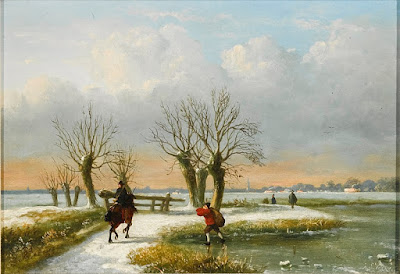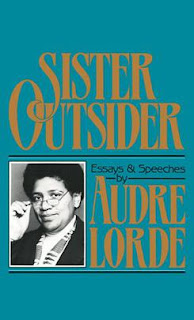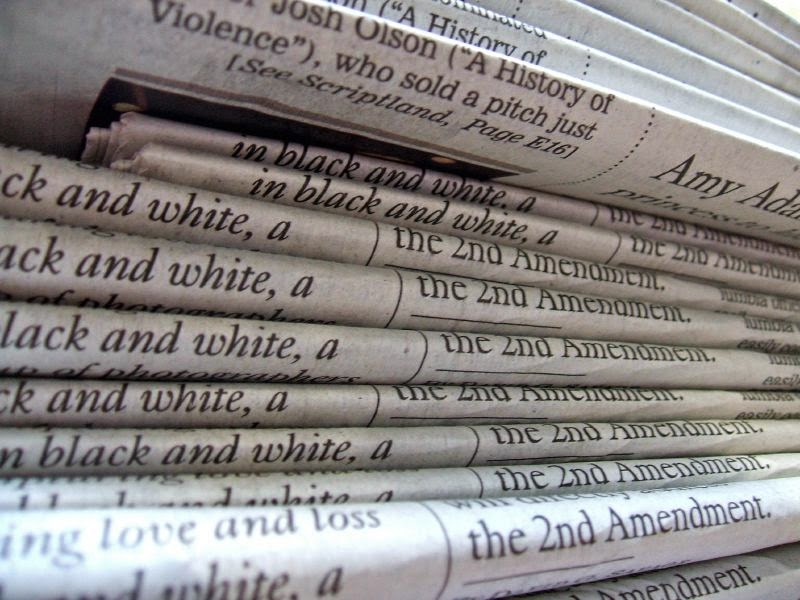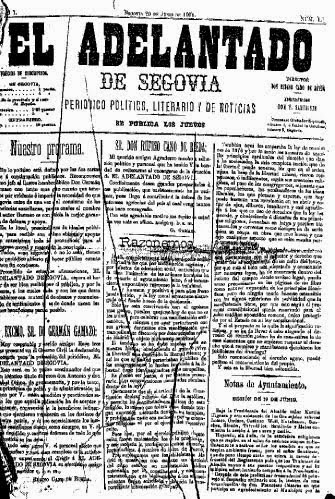My godfather, knowing my penchant for gossip, offered to buy this bestseller for me; and I gratefully accepted. Yesterday he came over for coffee and cake, brought it along, and I began reading it.
The first thing that struck me was, from a literary perspective, that the prose was not good. There would be paragraphs of exposition, and then lapidary short sentences in americanized English, which (to do them too much honour) reminded me aside from the americanization of the 'bob and wheel' structure of Sir Gawain and the Green Knight. "The sky was gray, but the tulips were popping" is not going to win any Nobel Prizes either.
Prince Harry is uncomfortable with expressing himself in writing — fair enough, but at least his ghostwriter could have found a better stylistic embodiment of a masculine, military-trained point of view, streaked with New Age touchy-feelyness. At its worst, it was something that E.L. James might write in the first person from the perspective of a U.S. Navy Seal. The editor, too, left "nonplussed" where 'nonchalant' was meant, and did not seem to realize that "running like a top" is a malapropism.
But it soon became clear why even literary critics, apart from John Crace in his pastiche in the Guardian, ignored these aspects.
The subject matter and emotion of Prince Harry's memoir — the story of his life, the self-irony, the sincere battle to overcome the experience of losing his mother, and his genuine-seeming empathy — are far more important. If you don't want to read the book but still are curious, try watching last week's interview with the American talk show host Stephen Colbert.
First and foremost, the memoir is about his grief. His brother William and he had famously enjoyed a close relationship with their mother in spite of royal conventions and her absences: the games their mother played with them, her child-appropriate vein of humour (burping contests etc.), her warm way of building relationships with employees as well as a large circle of friends, and her affection. At the same time, her sons knew her mercurial sides, too.
Losing her was an experience that, as a nine-year-old boy, Prince Harry could not handle well. He felt guilty for not crying more when she died, he refused to talk about her for years, and he had trouble remembering specific things about her.
(I don't know if it's in any way the same thing. But the memory loss reminded me of a personal experience: a bad year in school in Germany seemed to wipe out the memories of the four years of school I'd had in Canada before that.)
His 'magical thinking' that his mother was just hiding, living in peace until she felt ready to claim her sons again, rang a bell for me.
(I kept dreaming that the hospital was keeping my late father in a basement for medical research, and that eventually he would be woken up out of general anaesthesia and sent back to us. I haven't mentioned this before as it was nutty. Anyway, it's comforting to read that others have delusions like these, too.)
Aside from that tragedy, the book explains things I'd wondered about as a child, one or two years younger than Harry: what it was like to be a prince.
He explains that he suffered at school from having not just his teachers and father, but also the whole world, know how terrible his grades were. When there was gossip about a haircut gone wrong, it wasn't only a whisper network of fellow pupils who'd know about it, but in fact every child and adult in his life, because it was reported in the press. It's clear that every child has pressures and embarrassments, but that these are heightened if the press has no ethical barrier to reporting about minors.
There are also heart-warming family details, for example: "My mother used to say that being around Granny was like standing on a moving carpet" because of her throng of corgis.
And I liked the wry humour when he said that a girlfriend first struck his fancy because she 'wasn't visibly fitting herself for a crown' when she met him.
The book also reveals how Prince Harry felt after going to a party in an SA uniform when he was older, in 2005. It's clear that he regrets it and he explains again why it was bad — paying tribute as he does so to the (unnamed) late Chief Rabbi Jonathan Sacks. A later scandal was being photographed naked in Las Vegas, something I'd forgotten about and which is appropriately presented in the book as embarrassing but not morally questionable on his part.
Prince Harry's service in the military also, of course, forms a large part of his autobiography. To me, it's a part he hasn't fully processed. He hammers the point home that life with the British press was so unendurable that the military became a haven. There is nuance in what he describes — not writing Victorian-style jingoistic prose, but presenting both Afghan civilians and Taliban fighters as people, and expressing doubts about ethical aspects. To me, he did not 'boast' about his kills. I also greatly appreciated as a woman that he consistently mentioned women members of the military instead of defaulting to male.
But I still feel uncomfortable. The war zone is not just a tabloid-free godsend or a liberation from rigid socioeconomic hierarchies (he becomes a 'normal person' there: no class distinction). It is not just a place where soldiers become badly injured or traumatized or both, and then require organizations and events like the Invictus Games that Harry helped organize. It has other implications too. Also, on a more trivial level, I didn't like the idea of soldiers reading 'lad magazines' to pass the time either, but perhaps I'm too exacting.
I also feel uncomfortable, to a lesser degree, with the hunting lifestyle in which Prince Harry was immersed from childhood — he began to shoot squirrels and other small game at the age of twelve.
Lastly, to complete the chronology of his life so far, he describes his relationship with Meghan — as touchingly besotted with her in the book as he is in interviews and documentaries, live television coverage and photographs.
He describes their relationship's obstacles, although these chapters feel more perfunctory perhaps because a Netflix documentary already laid it all out. His and Meghan's press office was overwhelmed by answering journalists' requests and correcting press reports, and the tough working environment that was falsely laid at the door of his wife was in fact just a reflection of this influx, he explains. Her own workplace was at one point "on lockdown because someone, reacting to what they'd read, had made a credible threat."
For their picturesque wedding, the security personnel had set up snipers: "On the rooftops, amid the bunting, behind the waterfalls of streamers. Police told me it was unusual, but necessary. Due to the unprecedented number of threats they were picking up."
Their neighbours, friends, distant relatives of the bride, etc. were all subject to reporters' harassment. One case that he especially despised was that in the United States, the bride's mother job was helping people who were in palliative care, but
Paps scaled the walls and fences of many patients she visited. In other words, every day there was yet another person, like Mummy, whose last sound on earth ... would be a click.
***
After reading Spare, I don't agree that Harry was dragging down his father. In fact, like Diana and Sarah (Fergie), Charles is one of the figures in the book who are presented in a kindly, respectful light (I think) unlike tabloid coverage. Prince Harry writes of Charles's attempts to be a more engaged father after Diana dies, of his hard work ethic, of his intellectual rigour and far-ranging interests, and of his empathetic but also healthily critical-minded support during Harry's worst public gaffes.
After reading of Princess Diana as a loose cannon, a failure, and an embarrassment, for decades, it is also refreshing to see her differently: as a good mother who won the respect and love of her children, and a courageous person who against great odds at least tried to fight against the press instead of tamely submitting.
'Aunt Sarah' is the relative who made sure that Harry and William had locks of Diana's hair to remember her by, bringing these back from Paris in 1997. She helps Harry give Meghan Markle a crash course in royal etiquette when Meghan meets the Queen for the first time. Her daughter Eugenie (meanspiritedly caricatured in social media as an 'ugly stepsister' during William's and Kate's wedding) is one of Harry's and Meghan's best friends, giving warmth and support when these were needed.
Spare's passages on ex-girlfriends are also dignified: Chelsy Davy, Caroline Flack, Florence ?, and Cressida Bonas are presented to us kindly and thoughtfully. I felt it was also a tribute to Meghan that Harry was evidently free to include them in this way.
His affection for his sister-in-law Kate is also clear.
Unrelated to the Royal Family per se, what brightens the book and also speaks well for Prince Harry is the way he depicts the bodyguards and other employees whom he grows up with, as well as fellow soldiers.
Often bodyguards are depicted as unfeeling Big Brother figures who prevent celebrities from going and doing what they like, imprisoning them in a secure routine that takes the spontaneity and freedom from their lives. In Harry's book they become something analogous to childhood teachers whom we learned a lot from, like personally in spite of the professional barrier, and also keep in touch with later in life; and he also genuinely relies on their protection. This dynamic also explains why, for example, his wife describes in a documentary sobbing in the arms of a bodyguard when they decided to leave the UK.
Harry's empathy also comes across in how he describes the point of view of his entourage. One example: I liked how he considered the point of view of the chauffeur whom he asked to drive him through the tunnel where Princess Diana died.
Even the detail of the conflict-free diamond in the engagement ring that he arranges for his soon-to-be fiancé expresses a well-rounded view of his influence on the world around him.
***
That said, there were lapses into 'First World Problems.'
On a trivial level, I was annoyed by the suggestion that shopping for furniture from Ikea due to a lower budget is a humiliation. For my family, the fact that we don't need to go into deep debt for decent mattresses, bookshelves and kitchen shelves, a wardrobe, and bed frames, has been a godsend. If anything it would make sense to have concerns about forest stewardship, fair wages, and the survival of craftsmen.
Also, does the Palace need to release a statement saying that Meghan's wardrobe had been officially pre-approved, if a newspaper complains about her jeans at a public event? The tabloids are reflecting the petty preoccupations of minds at any socioeconomic level who, knowing no purer joy in life, just try to tear down others. If I hear someone calling someone else 'pudgy,' I generally sigh inwardly with exasperation at their lack of better priorities and move on.
***
Where the book's ethics falter on a personal level is in the depiction of Prince William. Here I think that Prince Harry's advisors should have intervened, or not egged him on.
In a charitable interpretation, Prince Harry is trying to break on William's behalf the ban on admitting that he is prey to human emotions, and trying to explain to his readers William's childhood trauma as well. He is expressing brotherly concern.
He also expressly defends William at times. For example he was annoyed that when William tried to protect his wife by restricting press access or said something that could be construed as anti-Brexit, the tabloid media (who was profiting both from the royal gossip and the pro-Brexit campaign) began to grind an axe.
But in the end, William's private life and feelings generally should have been William's own choice to share and describe. The more twisted these are, the more important it would have been to respect his privacy — for example, his drunken turmoil before his wedding, which also seems unfair to Kate.
In my view, it's fine for Harry to reveal that he drove through the tunnel in Paris where his mother died to try to understand if her death was accidental or not; but it's not for him to reveal if anyone else in his family did.
The most twisted scenes of the brothers' relationship in the book were not, to me, the one-sided physical fight that was leaked before publication. It was the argument of whether Prince Harry could wear a beard at his own wedding or not, which seemed emotionally abusive and also made me a little concerned on Kate's behalf. During his 'stag night' before the wedding to Meghan, Harry writes,
I also feared that if I got too [...] drunk and passed out, Willy and his mates would hold me down and shave me.
In fact Willy told me explicitly, in all seriousness, that this was his plan.
Less seriously, William's squabbles about who can monopolize which sphere of charity — whether it's wildlife or the entire (chronically overgeneralized — I rolled my eyes a lot here, as I'm not sure if either of the brothers ever set foot in, say, Egypt, or Algeria, or the Central African Republic) continent of Africa — also sound as ridiculous to me as they evidently did to Harry. And had neo-colonialist overtones.
But Prince Harry has apparently never been asked to fully see things from Prince William's point of view. It may not be a good point of view and as written above, elements of the elder brother's behaviour seem borderline abusive. But stray insights, like William feeling that he has been held to an "impossibly high standard," deserve consideration and could be delved into without betraying confidences.
The passages about Prince William generally suffer from bias due to sibling rivalry. For example I thought it was inappropriate to mention his impending baldness, a Samson-esque proxy for a power struggle between the two brothers. Such a power struggle is normal and happens within many families, I imagine — but writing about it publicly feeds into the cruelty of the press on the same subject, and is an unfair use of publicity leverage.
It is always difficult as an eldest child or younger child to define one's own role in the family. Who is trusted and given responsibility by the parents? who is given better and larger gifts? and so on and so forth. This is something that needs to be handled in private, or acknowledged with that context and perspective in public. It is not a singular persecution that only Prince Harry faces.
Animus tinged the representation of Thomas Markle, too. Anyone who cares to intrude on Meghan's father's privacy can find unflattering articles on the internet. It's not necessary to defend Meghan by treating him contemptuously. It still feels as if he was more victim than villain; I wondered if pressure from tabloid reporters triggered the heart attack before his daughter's wedding.
***
It is no surprise after watching Netflix's The Crown how manipulative the Royal Family's public relations teams and staff can be. I think this is one of the open ends of the book, no resolution being in sight yet unless perhaps the United Kingdom does decide to abolish the monarchy.
Family members want more press coverage for themselves, more favourable press coverage for themselves, and more press coverage for their charitable events. The Court Circular (i.e. annual public events calendar) becomes a horse race as each family member tries to achieve the most public engagements. Budgets are fought for. Christmas at Sandringham becomes an annual ordeal instead of an annual idyll.
Press officers with little sense of proportion or ethics encourage Royal family members to leak confidential information and plant unflattering articles about each other, to look good by comparison. Prince Harry also plausibly suggests that importing public relations personnel from politics into royal family members' offices has introduced a fiercer culture of backbiting.
But a happy ending is the legal victory in Hackergate, as well as the later legal victory regarding the publication of Meghan's letter to her father. Harry doesn't even need to mention much about how phone tapping by tabloid newspapers poisoned friendships and trust by making Royal Family members think that their circle was knowingly talking about confidential matters to the press. Or the fact that there was a tracking device on the car of his girlfriend, so the press could follow her everywhere. It's fortunately now known.
In the psychological effects of the preceding snooping and mind games, there are echoes of the 5th season of The Crown: to help procure an interview with Princess Diana, Martin Bashir presented spurious evidence to her that British intelligence services were monitoring her, exacerbating her "paranoia."
I'd like to think that now the media are far more inhibited in what they can do, if only due to their own self-interest. Perhaps also due to the lucrative new industry of minor celebrities' self-promotion, even more than legal precariousness.
Whether I'm contributing to the industry of nosy, harmful scrutiny of celebrities' private lives by reading the book and writing this review is, however, something I still need to finish thinking about.
[Update: An article in the Los Angeles Times gathers examples of factual errors in the book. The XBox gaming console being mentioned as existing in 1997 did strike me while reading.]
_(6505647963).jpg)










